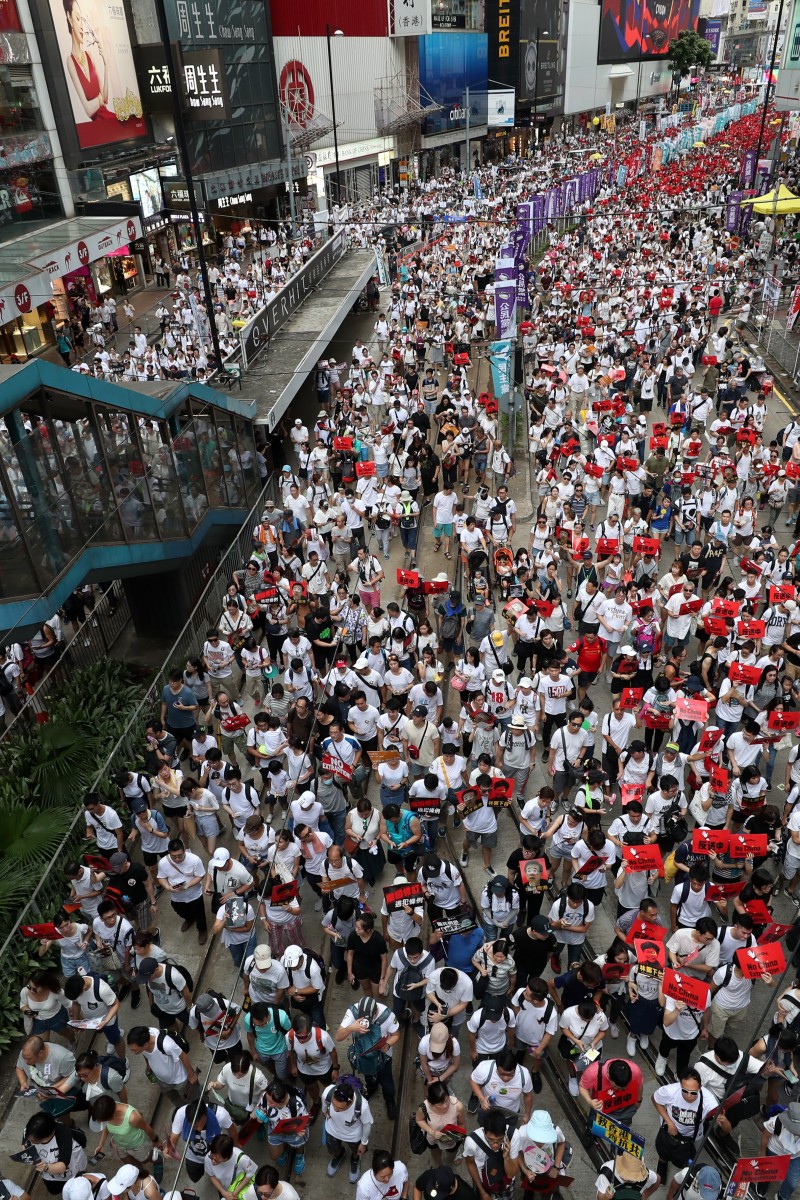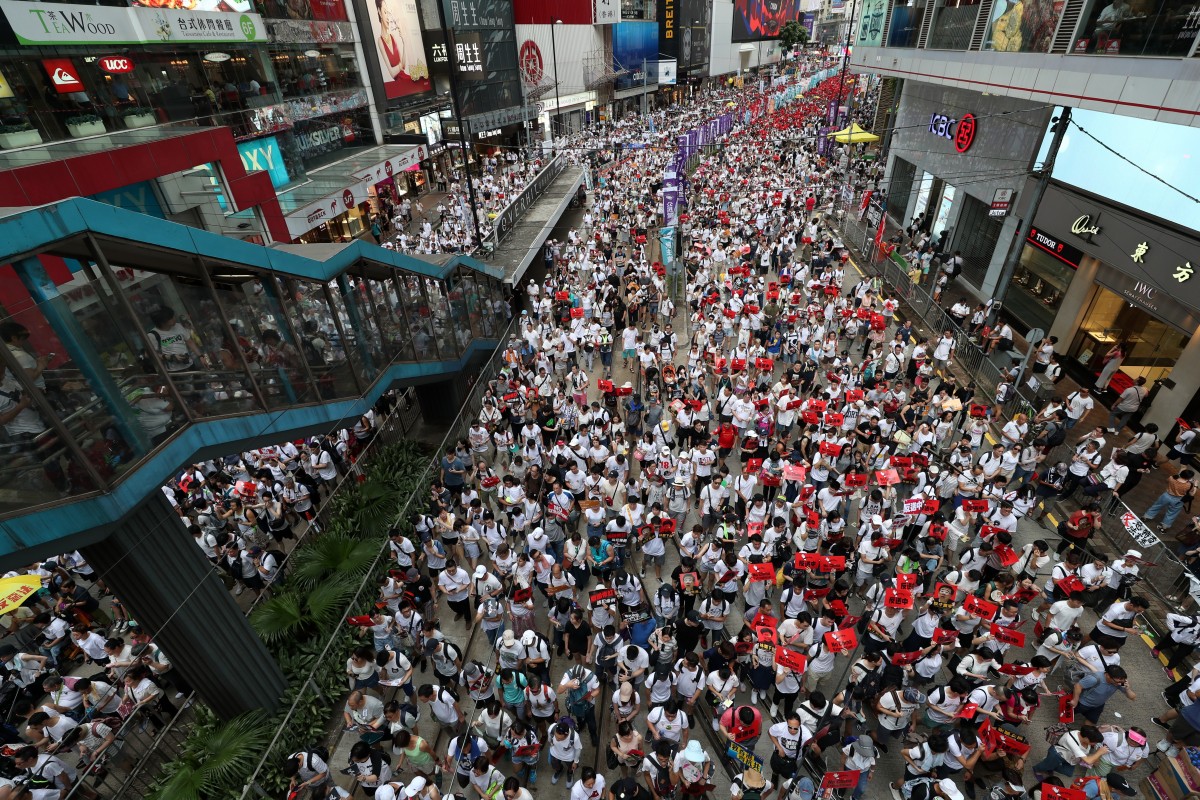
Hong Kong extradition law: Junior reporters' thoughts on covering protests against the fugitive bill
Joining the Junior Reporters' Club gives you the opportunity to experience life as a real journalist
 Our JRs covered all three events on June 9, June 12, and June 16.
Our JRs covered all three events on June 9, June 12, and June 16. This was the first time that I’d covered a protest, and the first time I’ve attended anything this big.
It was quite a task trying to juggle everything that was needed to do live reporting: we had to look around all the time to make sure that we were catching everything within the area we were covering; check social media to catch up on the latest news from everyone else; and verify anything we heard to make sure that it was real before we reported it.
There was definitely pressure, because we did not want to publish false information. There had been more than 1,000 people watching our stories on Instagram, and there might have been many more reading our live updates on the website.
Nevertheless, despite have to concentrate on my work for hours, I was still able to enjoy how unified Hong Kong people were – perhaps more than if I hadn’t been reporting. I was so focused on what everyone around me was doing. It also helped me understand how “fake news” so easily appears online.
From this experience, I’ve learned to always ask and verify what I hear before believing or sharing it. It’s not often we get to see such massive protests in Hong Kong, so I am glad I got my chance to help cover all three recent events. I would love to help cover future protests.
Pauline Wong, 17, Maryknoll Convent School
The first protest on June 9 demonstrated the anger of more than a million Hongkongers. They chanted slogans and complained about the government and police.
I saw peace in the eyes of the crowd, I felt tolerance in a sticky-hot Victoria Park, and I heard devotion in words from the protesters.
Yet, we got an official reply full of ignorance and arrogance after the march. The Chief Executive criticised a very mild protest.
Three days after the march, I saw blood and tears from the eyes of teenagers, I felt desperation in yelling and screaming, and I heard numerous shots trying to calm the chaos. The ruthless crackdown on June 12 seemed to show that the Sunday protest had been in vain.
What triggered me the most during the event was that teenagers were a large part of the protesters. Why are young people the only group of citizens to protect our homeland? Why are we so aware of the potential future suffering? Why does Hong Kong light the fires of the younger and not the older generations?
My top tips for teenagers if you plan to take part in protests for the first time: keep an eye out for fast information from reliable sources, and plan an escape route before joining a big crowd in case you get into any trouble.
Nester Chik, 17, Sing Yin Secondary School
What was surprising to me was the number of teenagers that took to the streets and marched with the adults. A lot of people in the crowds were young, and many took on leading roles in the protests. This is truly an age where anyone can change the world for the better.
Here are my tips for going to a protest:
- A useful rule of thumb when attending a protest is to know what you are doing. Don’t risk your life, leave if others are leaving. Follow the instructions of others or ask around if you don’t know what’s going on.
- Don’t go near anything dangerous.
- Bring food and water. You’ll need food to keep yourself going, and water to prevent heatstroke.
- It’s going to be hot and steamy wherever you go, so bring a towel and spare clothes to change into later.
Cyrus Chu, 16, St Louis School
Looking down at a Victoria Park that had been engulfed in a sea of black, I felt deeply humbled and encouraged to see so many people come out and stand up for what they believe in.
Before this, it had been easy for me to think that the extradition bill won’t have anything to do with me as I will be heading overseas for university. But after seeing the size of these protests and talking to participants, this fight has become a personal one. This isn’t just the government’s business, it’s an issue that affects everyone who believes in freedom.
Seeing the protesters shout and chant with passion and conviction has helped me see how my fellow Hongkongers feel, and has encouraged me to stand up for what I believe in. Being able to stand in the crowd and document history was a privilege.
Charlotte Fong, 17, International Christian School